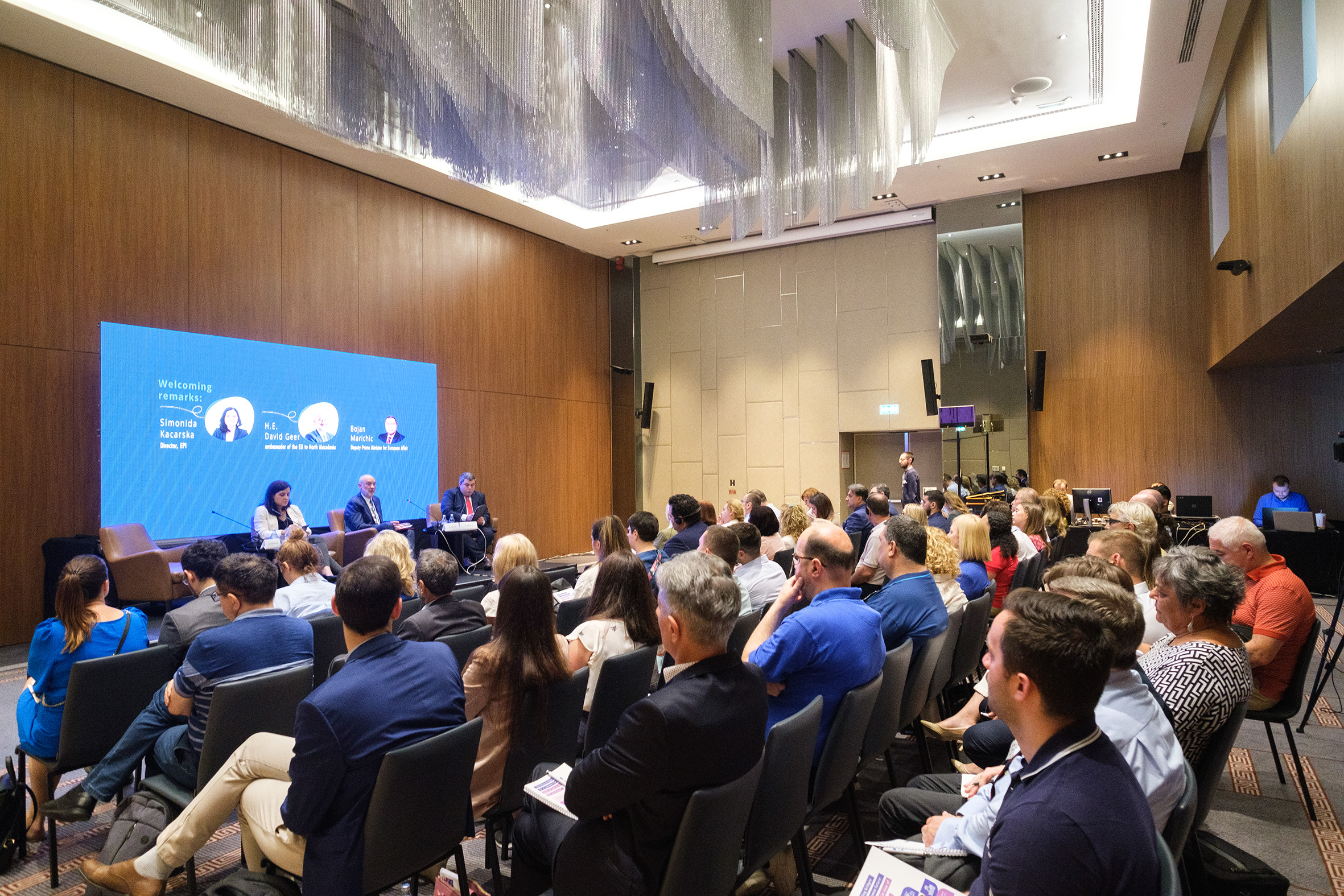Both at the time of the Thessaloniki Summit 20 years ago and today, domestic reforms are the way that the countries of the Western Balkans can help each other on the way to the European Union because the EU membership is not only a foreign political goal but also a domestic policy. This was highlighted at Forum Europaeum 2023 – 20 years after the Thessaloniki Summit: The way ahead yesterday in Skopje.
The speakers at the event emphasized that a lot has been done in these 20 years and that opportunities are open for many countries, but that political instability, both in the countries of the region, the member states and the EU itself, contributed to slowing down the processes and create reform fatigue. Delays and obstacles on the way to the EU redirect the focus from reforms and integration to other topics and the countries of the region become fertile ground for nationalism and populism.
It was concluded that the countries of the Western Balkans expect no less than what was promised 20 years ago in Thessaloniki, that is, full membership in the EU, without any replacements or modifications. But sustainability and reachability of European integration are also needed, so that citizens and governments know that there is a date for membership, which does not have to be precisely determined, but it should be known that it exists.
The Russian aggression against Ukraine strengthened the EU accession process of Moldova, Ukraine and Georgia, and the speakers at Forum Europaeum said that the ties between the countries of the Western Balkans and these countries should be strengthened, in order to find common points of interest in order to intensify the pressure on the EU for enlargement.
Forum Europaeum 2023 was opened by the director of EPI, Simonida Kacarska, together with the EU Ambassador in North Macedonia, David Geer and the vice-prime minister for European affairs, Bojan Marichikj.
Заклучено беше дека земјите од Западен Балкан не очекуваат помалку од ветеното пред 20 години во Солун, односно полноправно членство во ЕУ, без никакви замени и модификации. Но потребна е и одржливост и догледност на европската интеграција, за граѓаните и владите да знаат дека има датум за членство, кој не мора да биде прецизно определен, но треба да се знае дека постои.
Руската агресија врз Украина го засили процесот на пристапување кон ЕУ на Молдавија, Украина и Грузија, а говорниците на Форум Еуропеум порачаа дека треба да се засилат врските меѓу земјите од Западен Балкан и овие држави, со цел да се најдат заеднички точки на интерес и да се засили притисокот врз ЕУ за проширувањето.
Форум Еуропеум 2023 година беше отворен од директорката на ЕПИ, Симонида Кацарска, заедно со амбасадорот на ЕУ во Северна Македонија, Дејвид Гир и вицепремиерот за европски прашања, Бојан Маричиќ.
What we have achieved in the past 20 years after Thessaloniki was discussed by Radmila Šekerinska, the vice-president of the Party of European Socialists and a former official, Milica Uvalić from the University of Perugia from Italy and Srdjan Majstorović from the European Policy Centre from Belgrade. The second panel, which was dedicated to what lies ahead and opened the debate on proposals for reforming the accession process, was discussed by Jana Juzova from the Europeum Institute in Prague, Denis Cenusa, an expert from the Eastern European Studies Center from Lithuania, and a program director at Expert-Group from Moldova, as well as Jelena Djankic from the European University Institute from Florence in Italy.
Forum Europaeum 2023 – 20 years after the Solin Summit: The Road Ahead is an annual conference of the EPI, which this year aimed to take stock of ongoing developments and to look into current proposals for reforming the mechanisms of the accession process as well as the broader European architecture bringing together stakeholders from the Balkans and Eastern candidates.
The conference was organized within the framework of the project “Building bridges for a common future: Rule of law in view of EU accession”, which is financed by the European Union and aims to help create sustainable reforms for the rule of law in view of the EU accession.






